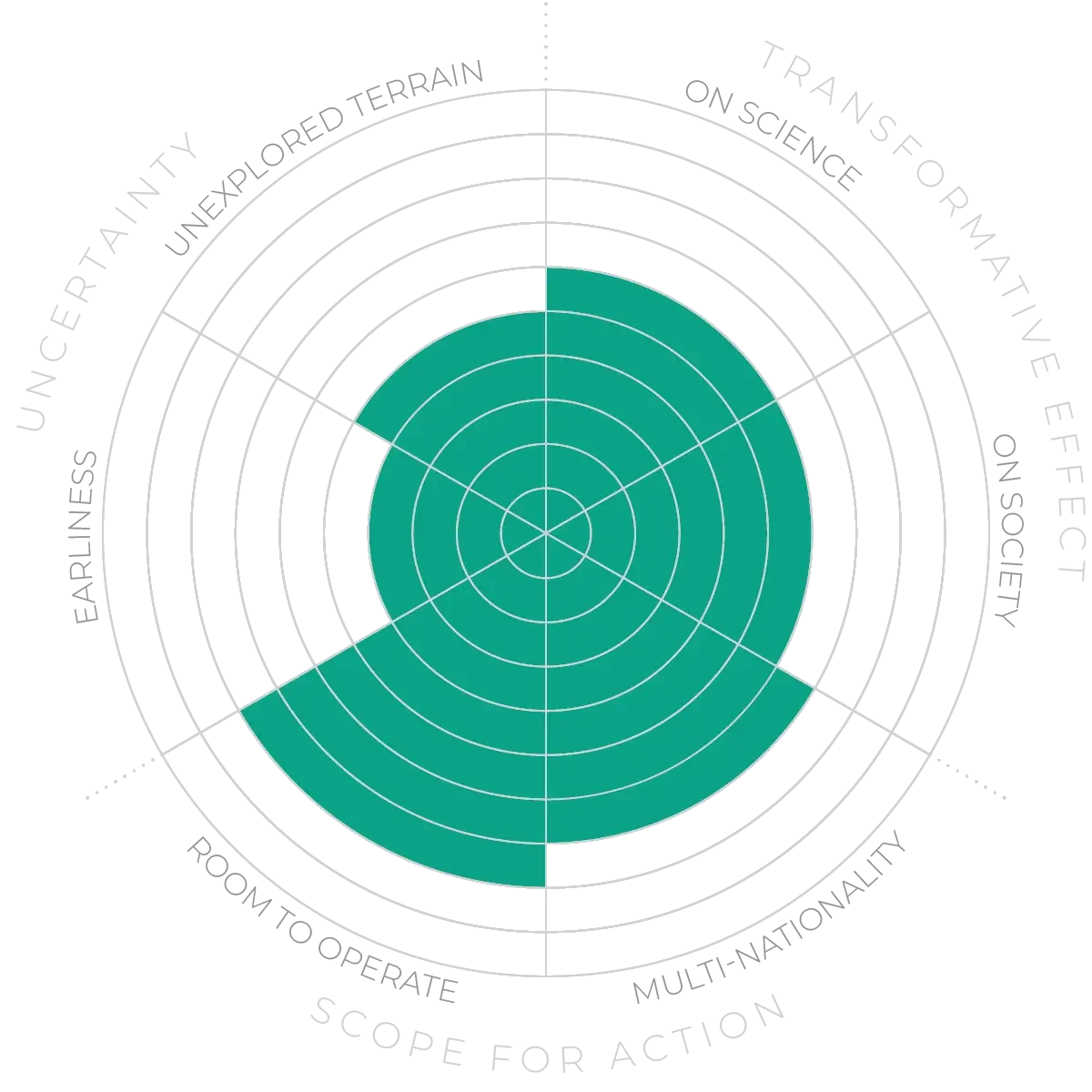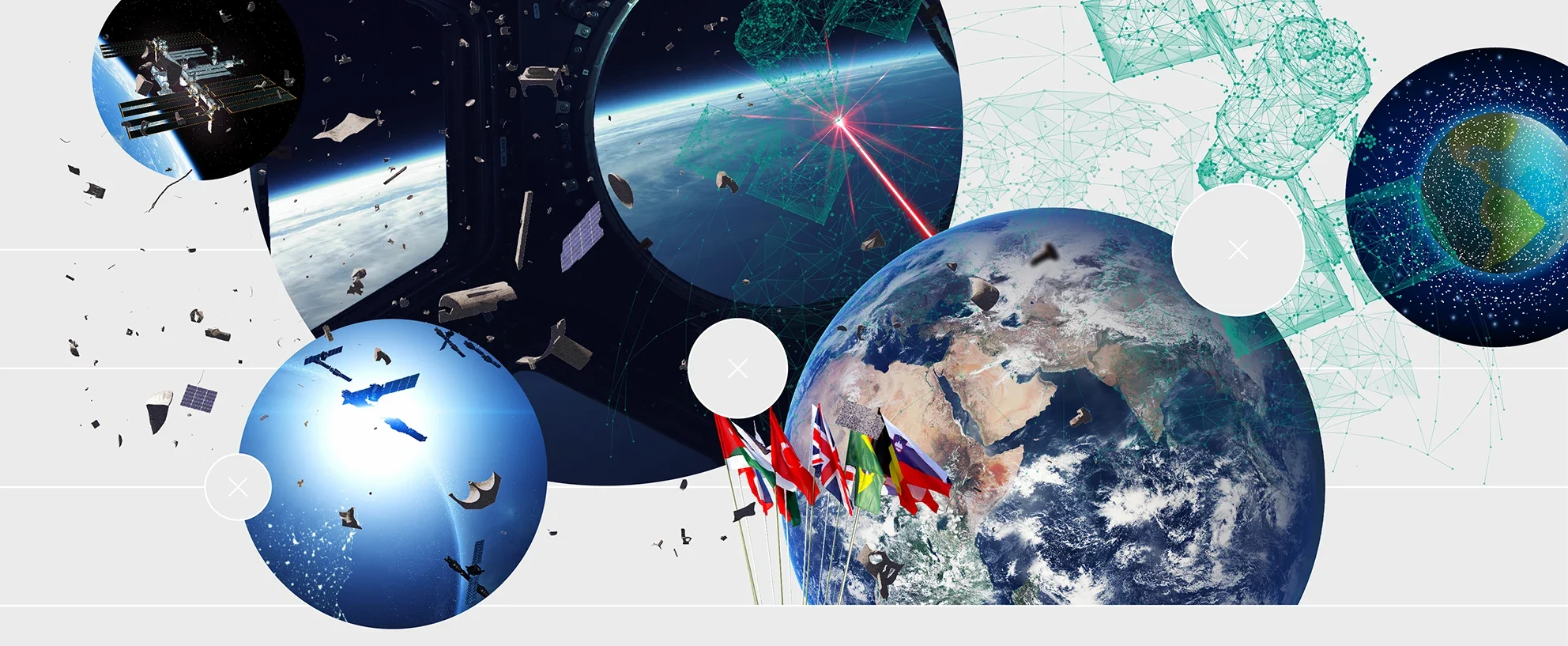Future Horizons:
10-yearhorizon
Debate over space weapons heats up
25-yearhorizon
Space traffic control gets green light
Humanity uses this environment as a viewing platform from which it can observe the Earth and the universe, as a thoroughfare for spacecraft, and as a home for satellites. Satellites provide commercial services such as telecommunications and Earth observation, civic services such as climate studies, and weather-monitoring and military services such as intelligence-gathering and both offensive and defensive operations.
Nation states have already begun to increase resources devoted to protecting, inspecting and destroying assets in space.8 The weaponisation of space is increasing tensions and raising the stakes for space-related diplomacy.9
Overcrowding is likely to become an important issue, particularly in areas of special interest, such as Lagrange points and low Earth orbit. But the prospects of “Kessler Syndrome”, in which a chain reaction of collisions increases debris levels exponentially, will drop as operators remove the large pieces of debris, like defunct satellites and spent rocket stages, that are the greatest threat. Various companies and agencies are already developing debris-removal capabilities. Space tugs that can move satellites have already been demonstrated, and the European Space Agency plans to demonstrate the safe removal of a large piece of debris with its Clearspace-1 satellite,10 due for launch in 2026.
How this orbital hygiene will be organised is not clear, but there are calls for a better form of space traffic control to reduce the chance of accidents, for the planned clean-up of space debris and for an appropriate legal environment to resolve disputes.
Orbital region - Anticipation Scores



